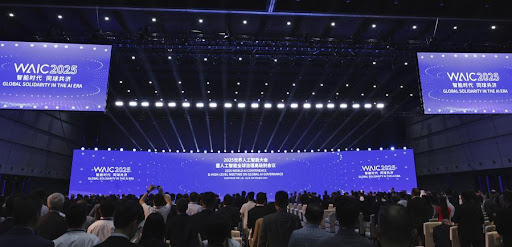In a bold move to reshape the global landscape of artificial intelligence (AI), China has proposed the creation of a new international organization dedicated to AI cooperation. The announcement, made by Premier Li Qiang at the opening ceremony of the 2025 World Artificial Intelligence Conference (WAIC) in Shanghai, signals China’s intent to lead efforts in narrowing the global technology gap and promoting inclusive AI development.
The proposed organization aims to foster collaboration among nations, particularly between advanced economies and developing countries, to ensure that AI technologies are shared equitably and governed responsibly. As AI becomes increasingly embedded in sectors like healthcare, education, agriculture, and national defense, the need for a unified global framework has never been more urgent.
A Multipolar Vision for AI Governance
Premier Li emphasized that AI should not become the “exclusive game” of a few powerful countries and corporations. Instead, he called for a multipolar approach to AI governance—one that reflects the diverse priorities and values of nations across the globe. “We should strengthen coordination to form a global AI governance framework that has broad consensus as soon as possible,” Li stated during his keynote address.
This initiative builds on President Xi Jinping’s 2023 Global AI Governance Initiative, which laid the groundwork for international dialogue on ethical and secure AI development. The new proposal seeks to institutionalize those efforts by creating a formal platform for cooperation, policy alignment, and technological exchange.
Bridging the AI Divide
One of the organization’s core objectives is to address the growing “AI divide”—the technological gap between developed and developing nations. Without coordinated action, countries in the Global South risk being left behind in the accelerating AI race, deepening existing inequalities in access to innovation, data infrastructure, and skilled talent.
China has pledged to share its AI development experience and products with other countries, particularly those in the Global South. This includes offering support in areas such as AI education, chip manufacturing, and regulatory frameworks. By doing so, China hopes to catalyze more equitable global development and foster shared prosperity in the digital age.
Inclusive Dialogue and Pragmatic Action
The envisioned organization will prioritize inclusive dialogue among governments, industry leaders, researchers, and civil society. It aims to translate shared objectives into tangible outcomes, such as joint research initiatives, policy harmonization, and capacity-building programs.
China’s Vice Foreign Minister Ma Zhaoxu, speaking at a roundtable with representatives from over 30 countries—including Russia, South Africa, Qatar, South Korea, and Germany—reiterated the importance of multilateralism in AI governance. He stressed that the organization would serve as an “international public good,” promoting transparency, openness, and mutual benefit.
Shanghai: The Future AI Hub
Shanghai is slated to host the headquarters of the proposed organization, leveraging its status as a national AI innovation hub. The city has already become a focal point for global AI dialogue, with the WAIC attracting policymakers, tech giants, and academics from around the world.
The three-day conference underscored the urgency of regulating AI’s growing risks, including machine hallucinations, deepfakes, and unchecked proliferation. Premier Li acknowledged bottlenecks such as limited AI chip supply and restrictions on talent exchange, calling for global coordination to overcome these challenges.
A New Chapter in Global Tech Diplomacy
China’s proposal comes at a time of intensifying technological competition, particularly between China and the United States. While the U.S. continues to expand its AI exports and influence, China is positioning itself as a champion of inclusive innovation and ethical governance.
By inviting countries to co-create the structure and agenda of the new organization, China is signaling a shift toward a more balanced and cooperative global tech order. If successful, this initiative could mark a turning point in how the world approaches AI—transforming it from a source of division into a tool for shared progress.
Sources: China View, Channel News Asia, Yahoo Tech, Shanghai Government: WAIC 2025 Announcement
